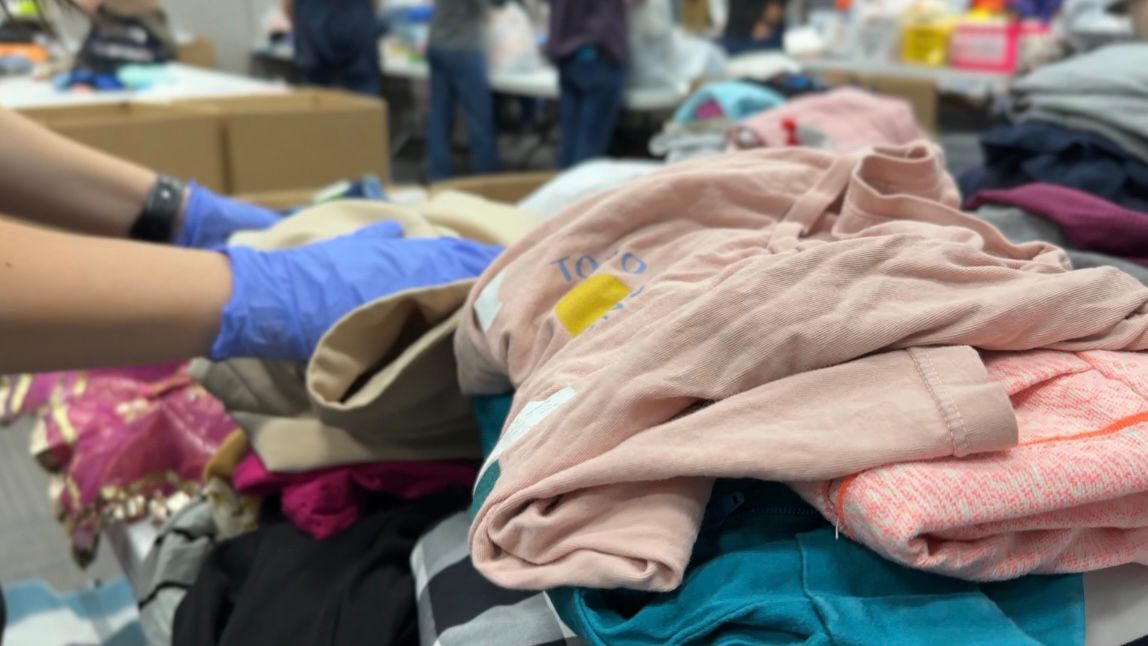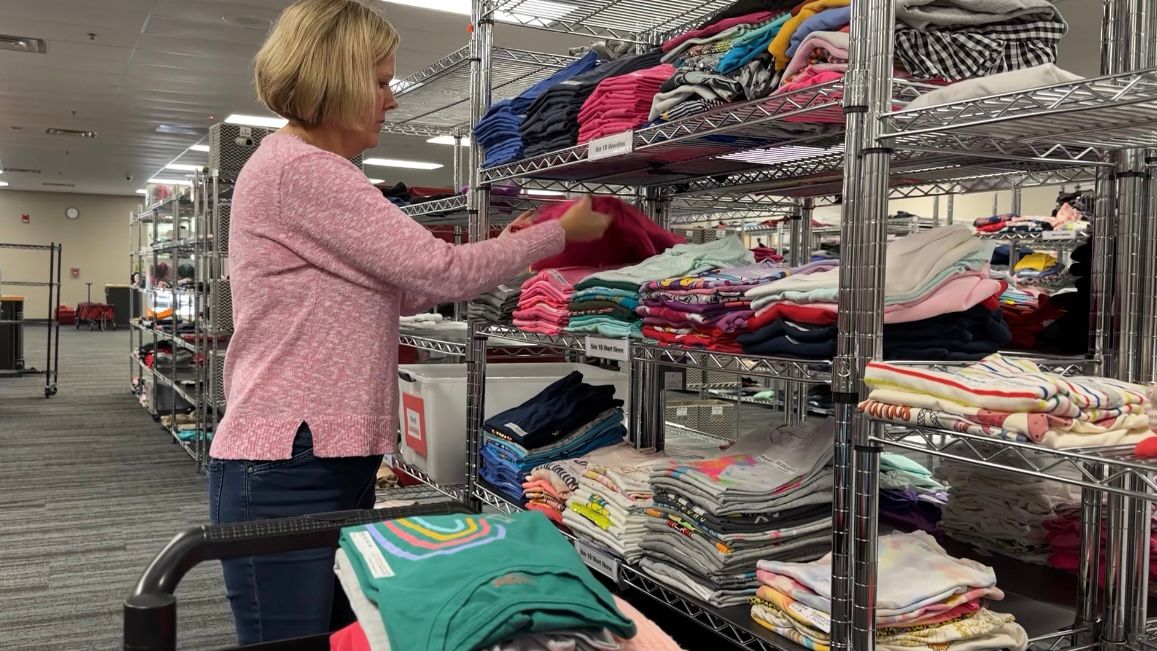RALEIGH, N.C. — As North Carolina stands together in the wake of Helene, Triangle-based clothing nonprofit Note in the Pocket is developing a statewide network to help address clothing needs for children in western North Carolina.
The organization is offering resources to local volunteers who are best positioned to help give on-the-ground assistance to those in need.

“Everybody wants people in need to receive what they need and to feel great about it, it just takes a couple more steps than a lot of people think through,” said Dallas Bonavita, the executive director for Note in the Pocket. “You have to have that network of knowing who needs what. Where do you put it? How do you organize it so that you can do the distribution?”
Note in the Pocket operates one of the largest clothing distribution operations in the country and provided clothes to more than 10,000 people last year.
Earlier this month it released a starter guide for North Carolina communities and volunteers confronting unprecedented needs for clothing. The guide simplifies the time-intensive and complex task of organizing and distributing quality clothing donations in correct sizes and seasons.
“Clothing is arriving in western North Carolina faster than anyone knows what to do with it. This resource guide will really help with that,” Bonavita said.
Food and shelter are the immediate thoughts after natural disasters, but she said clothing is just as important of an issue with far fewer organizations providing aid.

“It's an immediate need that they're not able to address because they're not sure how,” Bonavita said. “People are displaced. They're still looking for their pets. They're trying to figure out how to navigate all of the paperwork and medical and getting the roads done. At the same time, they've lost everything, and they do need clothes, but it's not easy.”
The nonprofit is hoping to create a network across western North Carolina, and that some of these temporary clothing relief distribution centers might end up being permanent.
“The children will continue to need clothes,” Bonavita said. “There were children who needed clothes before Hurricane Helene.”
The clothing distribution guide also details how to mobilize neighborhoods and faith-based groups to organize clothing drives.



